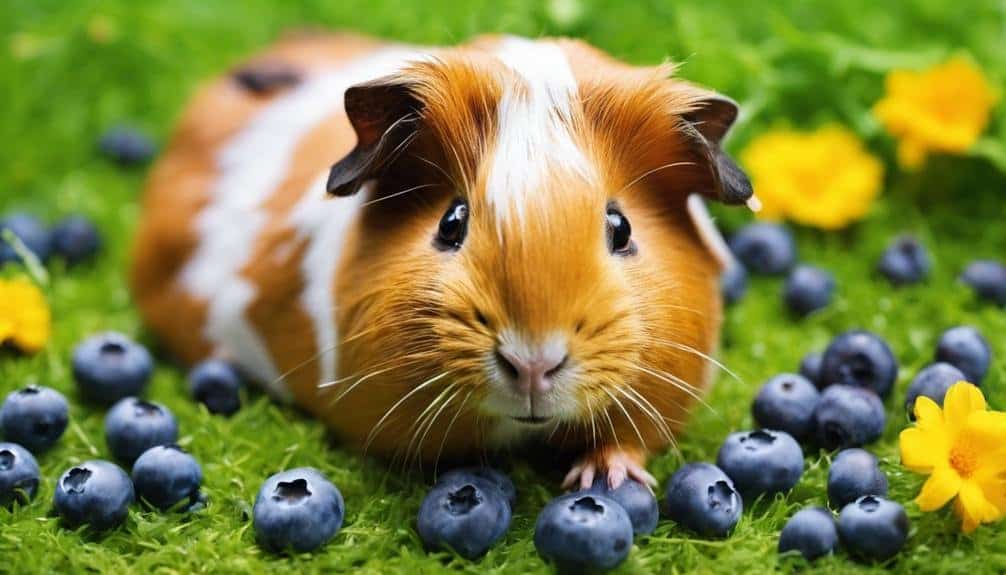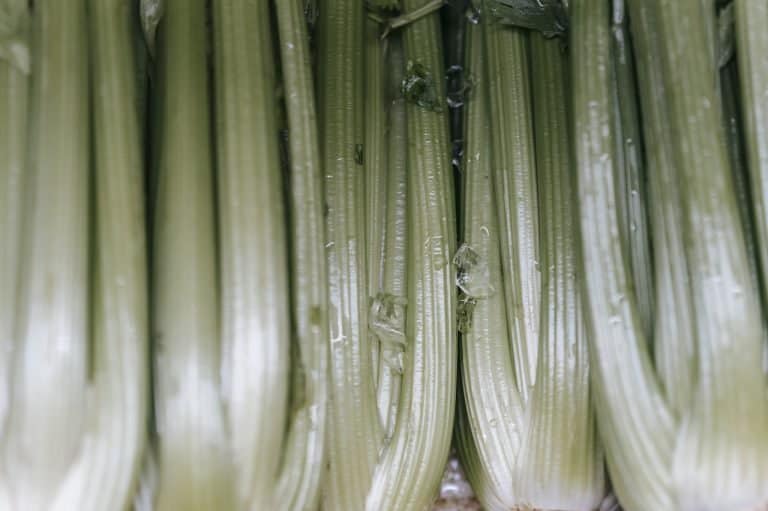How Guinea Pigs Can Safely Eat Blueberries: A Guide
Coincidentally, have you ever wondered if your guinea pig can enjoy blueberries safely? Understanding the ins and outs of incorporating this tasty fruit into their diet can make a significant difference in their well-being.
But before you take that next step, there are essential guidelines and precautions we should discuss to ensure your furry friend’s health remains a top priority.
Benefits of Blueberries for Guinea Pigs
Blueberries offer a wealth of essential vitamins and antioxidants that are highly beneficial for the overall health and well-being of guinea pigs. These tiny fruits are packed with Vitamin C, crucial for guinea pigs as they’re unable to synthesize this vitamin on their own. Additionally, the high fiber content in blueberries supports a healthy digestive system in guinea pigs, aiding in digestion and preventing issues like constipation.
The antioxidants present in blueberries play a key role in regulating blood pressure and combating harmful free radicals in guinea pigs, promoting their overall health. Furthermore, with an impressive water content of 84%, blueberries can contribute significantly to hydration in guinea pigs, essential for their well-being.
The trace amounts of calcium and phosphorus found in blueberries are also beneficial as they help maintain bone health and support proper growth in guinea pigs. Incorporating blueberries into a guinea pig’s diet can provide a nutritional boost and contribute to their overall health and vitality.
Risks of Feeding Blueberries to Guinea Pigs
While blueberries offer numerous health benefits for guinea pigs, it is important to be aware of the potential risks associated with incorporating them into their diet. Blueberries are high in sugar, which can lead to dental decay, diarrhea, obesity, and diabetes in guinea pigs. Additionally, the excessive acidity in blueberries may cause oral sores and digestive or urinary tract issues in these small animals. Feeding blueberries in moderation is crucial to prevent potential discomfort and health problems. It is important to monitor guinea pigs’ reactions when introducing blueberries to their diet to avoid digestive upset. Consulting with a veterinarian for dietary advice tailored to your guinea pig’s specific needs is recommended to prevent any risks associated with feeding blueberries.
| Risk | Impact | Prevention |
|---|---|---|
| High sugar content | Dental decay, obesity, diabetes | Feed in moderation, consider as an occasional treat |
| Excessive acidity | Oral sores, digestive/urinary issues | Monitor reactions, offer alongside fresh vegetables |
| Digestive issues | Diarrhea, discomfort | Gradual introduction, consult with a veterinarian |
Proper Serving Size for Guinea Pigs

For guinea pigs, the appropriate serving size of blueberries typically ranges from one to two berries per serving, which can be given once or twice a week. Guinea pigs eat a small portion, so it’s important to start with a small serving size and monitor for any adverse reactions.
Blueberries are a high-quality and good source of nutrition for guinea pigs, but feeding them in moderation is crucial. Due to their small size, blueberries don’t need to be cut into smaller pieces.
Guinea pigs are prone to digestive issues, so it’s essential to be mindful of the serving sizes to prevent any health issues in guinea pigs. Always monitor your guinea pig’s overall health and adjust the serving sizes accordingly. Remember, offering blueberries in moderation is key to ensuring your guinea pig enjoys the benefits without any negative consequences.
Preparation Tips for Feeding Blueberries
In preparing to feed blueberries to your guinea pig, ensuring the berries are thoroughly washed to remove any dirt, chemicals, or pesticides is essential for their health and well-being. Blueberries should be fed in moderation to prevent digestive upset and other health issues. Start with one to two blueberries once or twice a week, monitoring your guinea pig’s reaction.
There’s no need to cut blueberries into smaller pieces due to their size, making them easy to serve as a whole. It’s crucial to ensure that the blueberries are fresh and of good quality to maximize the nutritional benefits for your guinea pig. By monitoring the quality of the blueberries and feeding them in moderation, you can help maintain your guinea pig’s well-being while enjoying the delicious treat.
Remember to always keep a close eye on your guinea pig’s response when introducing new foods into their diet.
Monitoring Guinea Pig’s Response to Blueberries

To assess the impact of blueberries on your guinea pig’s well-being, closely monitor any changes in their health and behavior following the introduction of this fruit into their diet. When monitoring your guinea pig’s response to blueberries, consider the following:
- Watch for Digestive Upset: Keep an eye out for signs of digestive issues such as diarrhea or bloating after feeding blueberries to your guinea pig.
- Observe Behavior Changes: Monitor your guinea pig for any changes in behavior, appetite, or stool consistency when incorporating blueberries into their diet.
- Adjust Portion Sizes: Track the quantity of blueberries consumed and note any adverse reactions to adjust portion sizes accordingly for your guinea pig’s well-being.
Conclusion
In conclusion, blueberries can be a nutritious and delicious treat for guinea pigs when fed in moderation.
By following the proper serving size, monitoring their response, and consulting a veterinarian if needed, guinea pig owners can safely incorporate blueberries into their pets’ diet.
Remember to prioritize a balanced diet of pellets, hay, and vegetables, with blueberries as an occasional indulgence to keep your furry friends healthy and happy.







